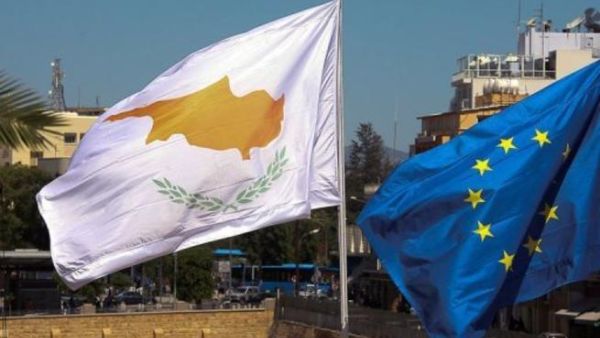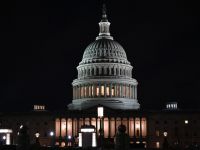The discovery of significant offshore natural gas deposits in the Eastern Mediterranean seabed off the coast of Cyprus could prove a financial lifeline for the EU’s third smallest member.
The Cypriot banking system collapsed in 2012 since its banks were loaded with Greek sovereign debt and German Chancellor Merkel effused to authorize a ECB/EU bailout due to the island’s reputation as a destination for Russian capital flight.
However, Cyprus is not yet a Mediterranean Qatar even though the US Geological Survey estimated the island’s seabed contains 120 trillion cubic feet of natural gas. International politics could well prevent Cyprus from exporting natural gas since Israel, Lebanon and even the Palestinian Authority have all conflicting claims to the offshore gas deposits. Moreover, Turkey, whose troops invaded Cyprus after a Greek coup d’état and set up a state in the northern third of the island, is also a formidable obstacle to Nicosia’s energy exports. In fact, the EU and the UN have failed to reunite Cyprus before its EU and the Turkish Republic of Northern Cyprus (TRNC) exists, even though no nation in the world other than Turkey recognises it.
The economics of the Cypriot gas reserves are as complex as its politics. Threats from Turkey have deterred many international oil and gas firms from investing in the Cypriot offshore gas fields. Noble Energy, a Texan driller, has drilled a mere two exploration wells.
The Cypriot proven reserves are estimated at only five trillion cubic feet, meaning global majors cannot justify building a natural gas liquefaction terminals, which the Nicosia government cannot finance alone. The rational strategy would be to construct a pipeline to the Turkish coast and distribute it to one of the Middle East’s great natural gas importers. Unfortunately, Cyprus cannot sell natural gas to the Turkish Republic as long as Turkish military garrisons are stationed in the TRNC enclave.
Ankara has also insisted that its vassal statelet on the island also receive natural gas export revenues, even though it has no UN or international legal standing. The Turkish Navy has even sent gunboats off the coast of the TRNC to prevent any offshore exploration for hydrocarbons by foreign companies. At a time when Turkish Prime Minister Erdogan is besieged in a political crisis, it is unrealistic to expect Turkish concessions to Nicosia on either the reunification of the island or on its energy reserves.
The Eastern Mediterranean offshore gas fields have also mined in the Arab-Israeli conflict. Israel’s offshore Leviathan and Tamar fields have 28 trillion cubic feet of gas, enough to make it self-sufficient in energy with no need to import Egyptian gas via pipeline from North Sinai. However, Israel is reluctant to export its natural gas to Turkey due to the sharp deterioration in its relationship with Erdogan after the Mavi Marmara tragedy in 2010.
It is politically impossible to export Israeli natural gas via pipeline to either Lebanon or Syria. Diplomats speculate that Israel’s only option will be to build a pipeline to export its natural gas to Crete/Greece via Cyprus. The de facto civil war between the Egyptian military and the Bedouin tribes in the Sinai Peninsula makes a Sinai pipeline a political and economic impossibility.
Lebanon has disputed Israel’s offshore “economic exclusion zone” in the Mediterranean that contains the Leviathan and Tamar gas fields. Hezbollah’s political power in the Lebanese Cabinet and state makes joint exploration or production of natural gas impossible.
In a similar vein, Israel blockades Gaza and prevents Palestinian energy exploration off the coast of the Gaza Strip, now ruled by Hamas and disputed by the Palestinian Authority in Ramallah.
An innovative idea that has been discussed in Nicosia is to build a floating LNG terminal, even though its construction could be a security and financial nightmare. The existing LNG terminals on the Sinai Coast are not viable due to the fall in natural gas production in Egypt since the fall of President Mubarak.
It is truly a pity that civil wars, terrorism and hostility among regional powers prevents the optimal exploitation of the eastern Mediterranean’s natural gas treasure, which has the potential to transform the economic future of Cyprus, Turkey and the Levant. As Qatar and Australia demonstrate, LNG export infrastructure requires low political risk and billions of dollars in up-front costs. A peace settlement in Cyprus and the Israel/Palestine issue seems a prerequisite before any energy major will even begin to underwrite the technological, financial and political risk of a complex LNG project. However, the UN reunification talks on Cyprus are frozen and the US has not been able to broker a sustainable Arab-Israeli peace settlement. Could the prospect of natural gas riches kick start diplomacy in Cyprus or the West Bank/ Gaza. The dreamer says “why not?” but the realist answers “probably not!”
By: Sarie Khaled
The writer is a Dubai-based research analyst in energy and GCC economics.








